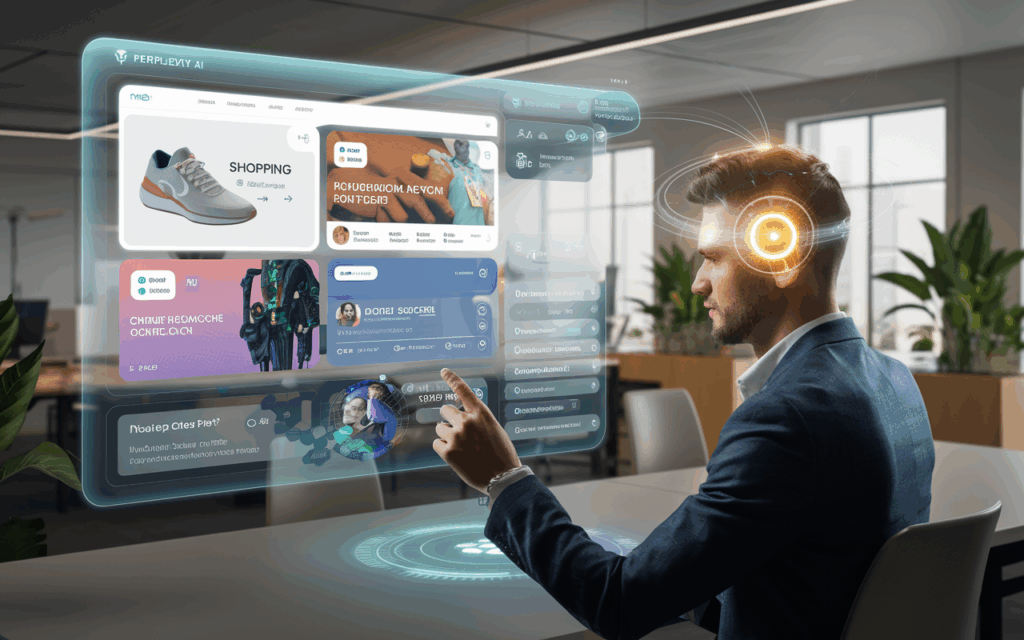Title: The Future of Browsing: Perplexity’s Ambitious Move into Hyper-Personalized Ads 🌐🔍
In a bold move to enter the competitive realm of web browsers, Perplexity is gearing up to launch its new browser named Comet this coming May. The news comes from CEO Aravind Srinivas himself, who recently shared his vision in a podcast interview on TBPN. 🌟 But what makes this browser different? Well, it's all about hyper-personalization and data tracking! 📊
The Essence of Tracking: Why It Matters 💡
Srinivas revealed that one of the core motivations for developing Comet lies in the ability to collect extensive data on users’ online behavior—beyond just interactions within the Perplexity app. According to him, understanding users’ purchases, the hotels they visit, and their browsing patterns allows the company to create a rich user profile. This data is crucial for crafting ads that are not just relevant but tailored to individual preferences, thus enhancing the overall user experience. 🛍️🍽️
His statement, "we want to get data even outside the app to better understand you," emphasizes a growing trend in the tech industry where personal data is king. However, this leads us to ponder: at what cost does hyper-personalization come? 🤔
The Comparison with Established Giants 🥇
Silicon Valley has never shied away from the idea of tracking online behavior—just look at Google! The tech giant's success heavily relies on understanding user behavior to sell ads. Srinivas acknowledges this, suggesting that following users on their internet journeys has proven effective for many, including giants like Meta and even Apple, which has faced scrutiny for its own tracking practices.
Yet, with great power comes great responsibility. As the debate over privacy continues to heat up, the question looms: Can newcomers like Perplexity successfully manage user trust while pursuing data-intensive strategies? 🕵️♂️
Partnerships: Expanding the Ecosystem 🌍
Interestingly, Comet is not just a standalone venture. Perplexity is partnering with Motorola, aiming to pre-install their app on Motorola's Razr series phones, making accessibility easier than ever. They are also in discussions with Samsung to further integrate their technology into mobile devices. 📱📈
This strategy not only strengthens their position in the market but also raises the stakes in the ongoing competition against established players. But will these partnerships be enough to sway users away from their current browsers?
Into the Future: Will Users Embrace Tracking? 🔮
Srinivas’s confidence in users embracing the idea of tracking hinges on offering more relevant advertisements. "We plan to use all the context to build a better user profile," he stated, showcasing an assurance that enhanced personalization would lead to better engagement—essentially making the browser a go-to for an enriched online experience.
Yet, we cannot ignore the growing skepticism surrounding personal data usage. As distrust in tech companies persists, Perplexity will need to tread carefully, ensuring they build a reputation for transparency and respect for user privacy.
Conclusion: A Bold Move for a Brave New World 💪
Perplexity's entry into the browser market with Comet is certainly one to watch. With a focus on hyper-personalized advertising, they are trying to strike a balance between delivering valuable, tailored experiences while also navigating the murky waters of online privacy and ethical tracking. As the industry evolves, consumers will ultimately decide whether the allure of tailored ads is worth the potential compromises on their online privacy. How do you feel about browsers that track your data for better-advertising experiences? Let us know in the comments! 💬
Hashtags:
#TechTrends #DigitalPrivacy #HyperPersonalization #DataTracking

More Stories
Meta’s AR Ambitions and AI Safety: Insights from the Equity Podcast
Insight Partners Data Breach: A Wake-Up Call for Cybersecurity Awareness
Lovable’s Ascendancy: Anton Osika at TechCrunch Disrupt 2025